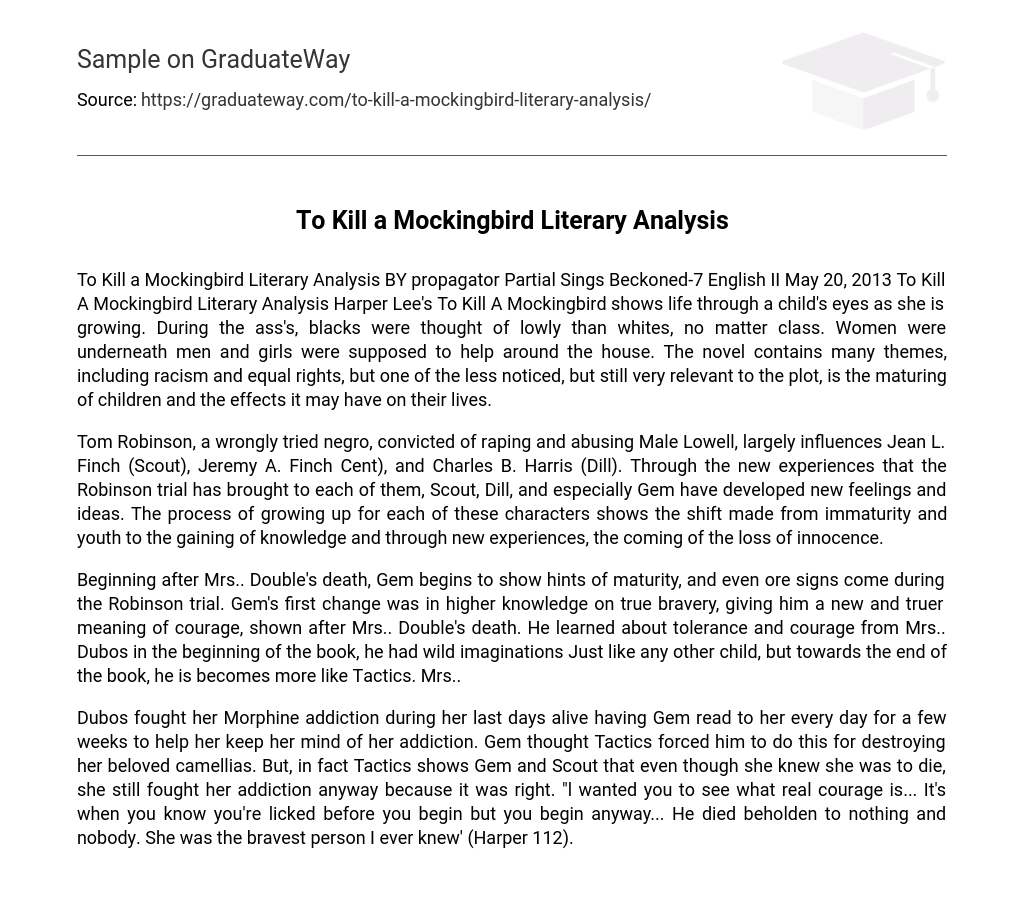Harper Lee’s To Kill A Mockingbird shows life through a child’s eyes as she is growing. During the ass’s, blacks were thought of lowly than whites, no matter class. Women were underneath men and girls were supposed to help around the house. The novel contains many themes, including racism and equal rights, but one of the less noticed, but still very relevant to the plot, is the maturing of children and the effects it may have on their lives.
Tom Robinson, a wrongly tried negro, convicted of raping and abusing Male Lowell, largely influences Jean L. Finch (Scout), Jeremy A. Finch Cent), and Charles B. Harris (Dill). Through the new experiences that the Robinson trial has brought to each of them, Scout, Dill, and especially Gem have developed new feelings and ideas. The process of growing up for each of these characters shows the shift made from immaturity and youth to the gaining of knowledge and through new experiences, the coming of the loss of innocence.
Beginning after Mrs.. Double’s death, Gem begins to show hints of maturity, and even ore signs come during the Robinson trial. Gem’s first change was in higher knowledge on true bravery, giving him a new and truer meaning of courage, shown after Mrs.. Double’s death. He learned about tolerance and courage from Mrs.. Dubos in the beginning of the book, he had wild imaginations Just like any other child, but towards the end of the book, he is becomes more like Tactics.
Mrs. Dubos fought her Morphine addiction during her last days alive having Gem read to her every day for a few weeks to help her keep her mind of her addiction. Gem thought Tactics forced him to do this for destroying her beloved camellias. But, in fact Tactics shows Gem and Scout that even though she knew she was to die, she still fought her addiction anyway because it was right. “l wanted you to see what real courage is… It’s when you know you’re licked before you begin but you begin anyway… He died beholden to nothing and nobody. She was the bravest person I ever knew’ (Harper 112).





